Are you considering applying to a college or university but feeling weighed down by the application fees? You're not aloneâmany students face financial barriers that can hinder their educational aspirations. Fortunately, many institutions offer fee waivers to help alleviate this burden and make the application process more accessible. If you're curious about how to navigate the fee waiver application process effectively, keep reading for valuable tips and insights!
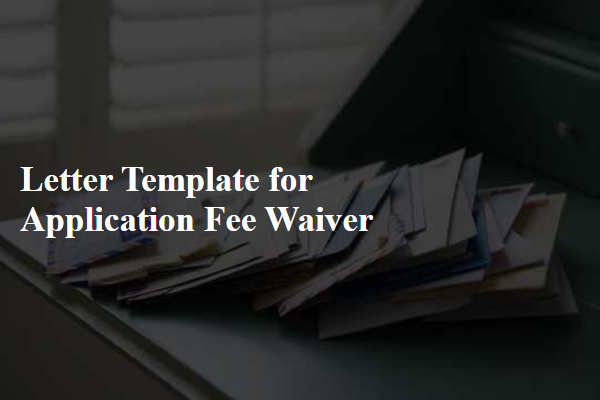
Applicant's personal information
The application fee waiver request highlights the financial constraints faced by the applicant. Personal information includes full name, address (including street number, city, state, and zip code), email address, and phone number. The applicant may also provide details such as date of birth and social security number (if applicable) to verify identity. Supporting documentation might include proof of income, such as pay stubs or tax returns, demonstrating the need for assistance with the application fee. Clear communication of this information not only facilitates the fee waiver process but also emphasizes the applicant's commitment to pursuing educational opportunities despite financial hurdles.
Reason for fee waiver request
Applying for a fee waiver can significantly alleviate financial burdens for low-income students seeking higher education opportunities. Various universities and organizations provide opportunities for applicants to request waivers based on financial hardship. Common reasons for fee waiver requests include unemployment of guardians, unexpected medical expenses, or existing financial obligations, such as loans or family assistance. Providing documentation, such as tax returns, benefit statements, or letters from social service agencies, can strengthen the case for a waiver. This financial relief allows students to focus more on their academic goals without the stress of application costs.
Supporting documentation
Application fee waivers allow students with financial hardships to access educational opportunities without the burden of monetary costs. Typically, institutions, such as universities or colleges, require specific supporting documentation to process fee waivers. This documentation often includes proof of income, such as pay stubs or tax returns, demonstrating the financial need of the applicant. Additionally, a letter outlining the reasons for requesting a fee waiver is necessary, detailing circumstances like unemployment, family responsibilities, or medical expenses. Institutions may also ask for additional evidence, such as statements from counselors or community leaders, reinforcing the student's situation and need for support. Proper submission of these documents within the institution's deadlines is crucial for successful waiver consideration.
Demonstration of financial need
Financial need assessment is crucial for determining eligibility for application fee waivers. Many universities, such as the University of California system, require documentation of income and household size to establish financial need. The U.S. Department of Education guidelines suggest that a household income below 150% of the federal poverty line may qualify for a waiver. Additionally, certain circumstances like unemployment, medical expenses, or participation in government assistance programs can strengthen the case for financial necessity. Each institution may have its own policies regarding supporting documents, typically including tax returns, pay stubs, or letters from social service agencies to verify the applicant's financial situation.
Formal, respectful tone
A well-crafted request for an application fee waiver demonstrates respect and professionalism while clearly articulating the need for financial assistance. It includes essential elements such as the applicant's full name, contact information, and details about the specific program or university. The introduction establishes the purpose of the letter, emphasizing the financial burden the fee imposes. A brief but informative explanation of the applicant's financial situation enhances the credibility of the request. Closing remarks express gratitude for the consideration and reflect a hopeful tone regarding the potential for granting the waiver, fostering a positive impression with the admissions office.

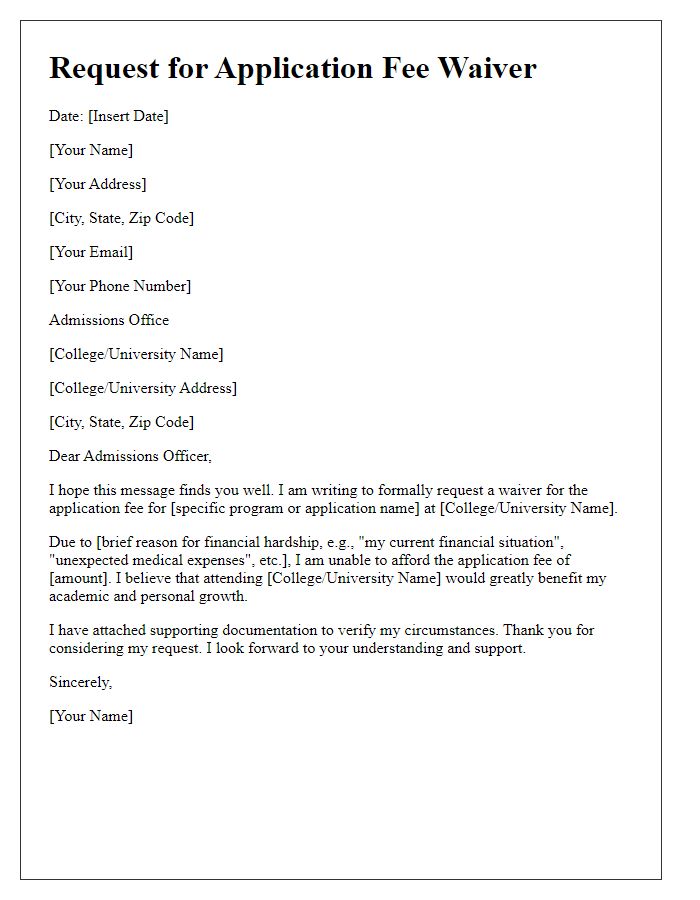
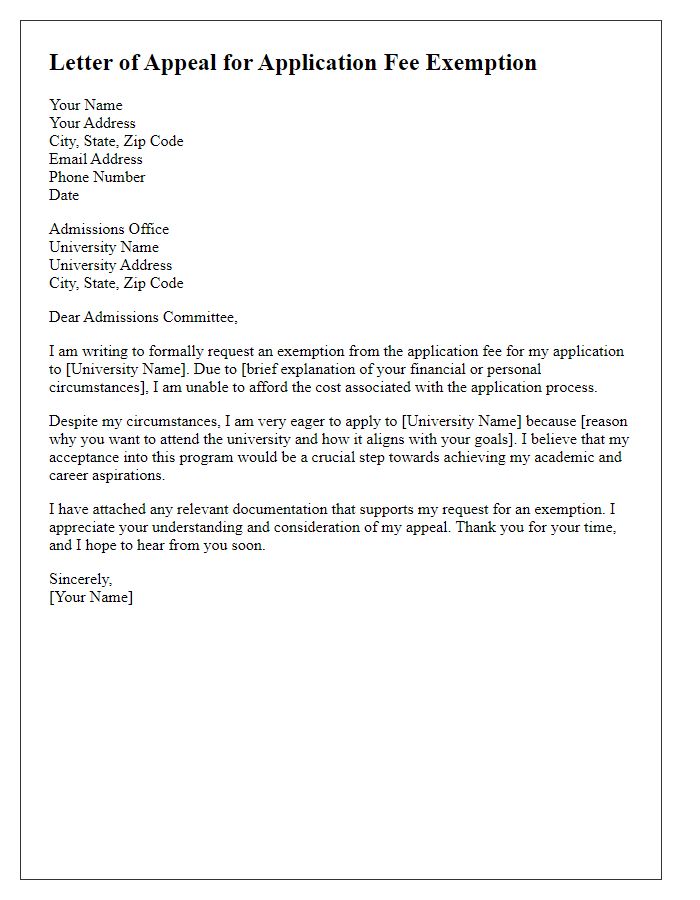
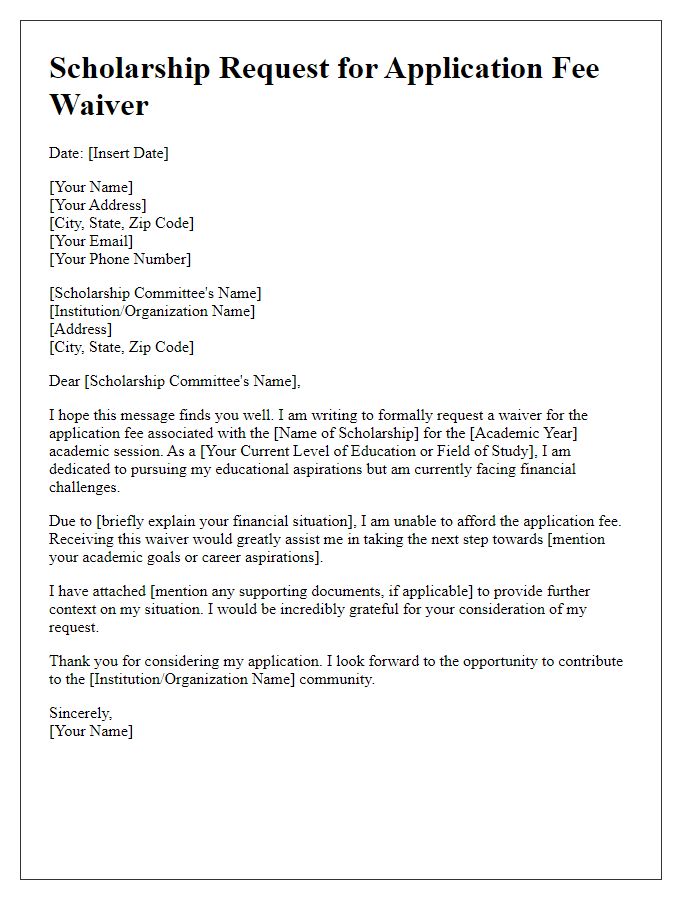
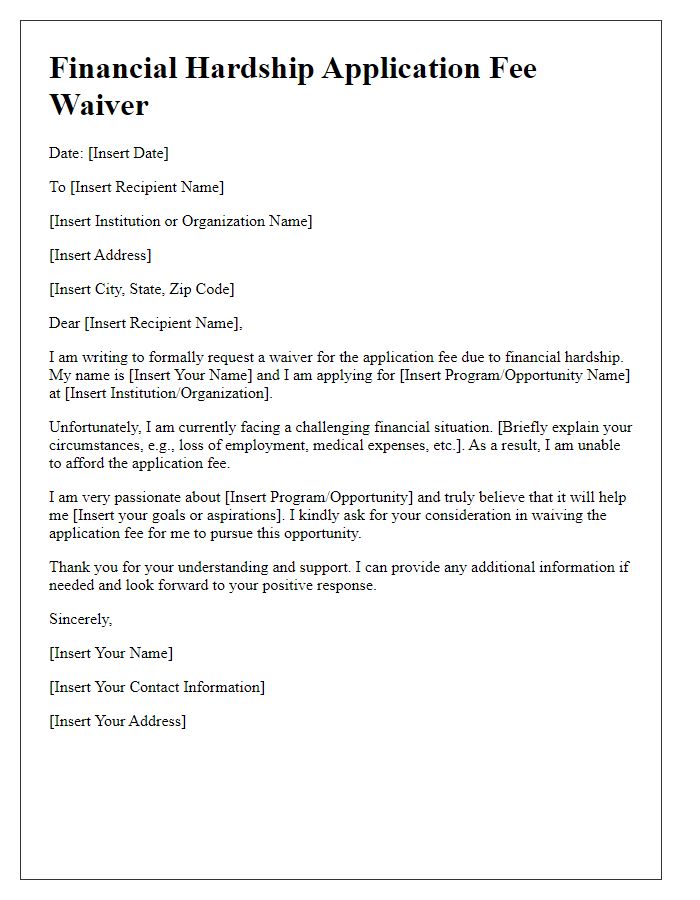
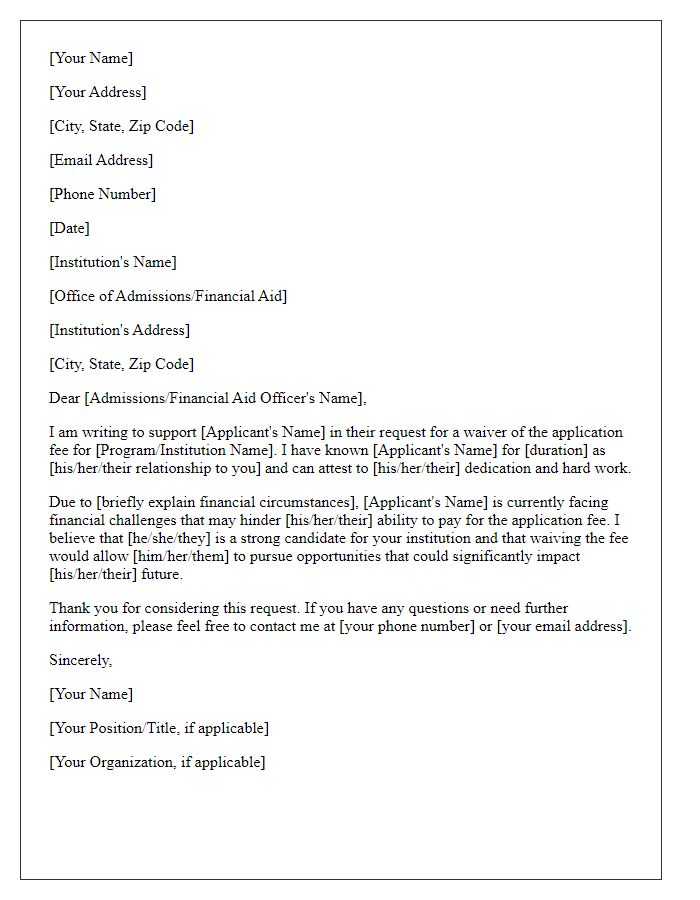

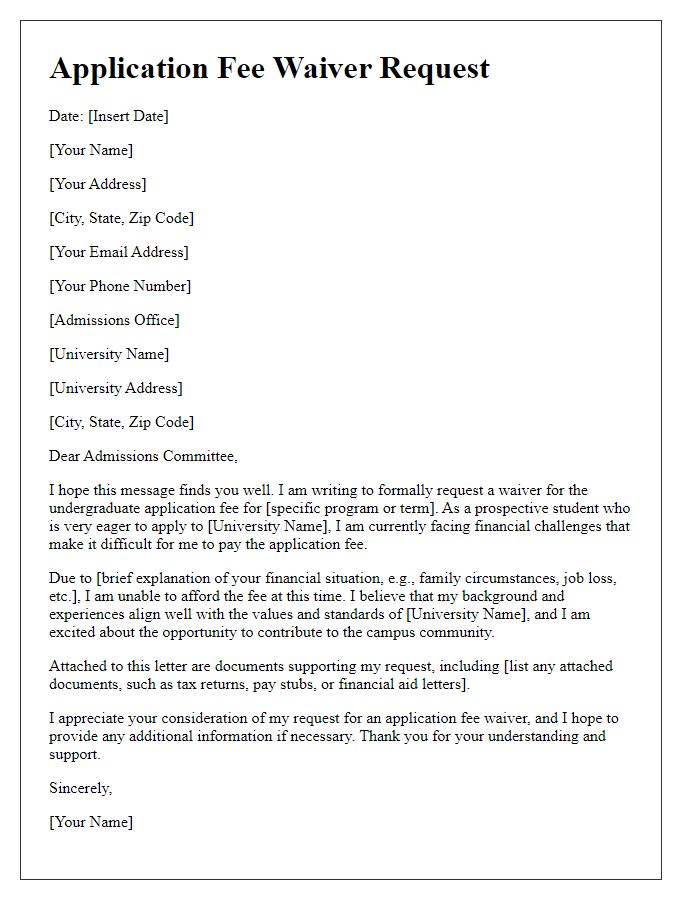
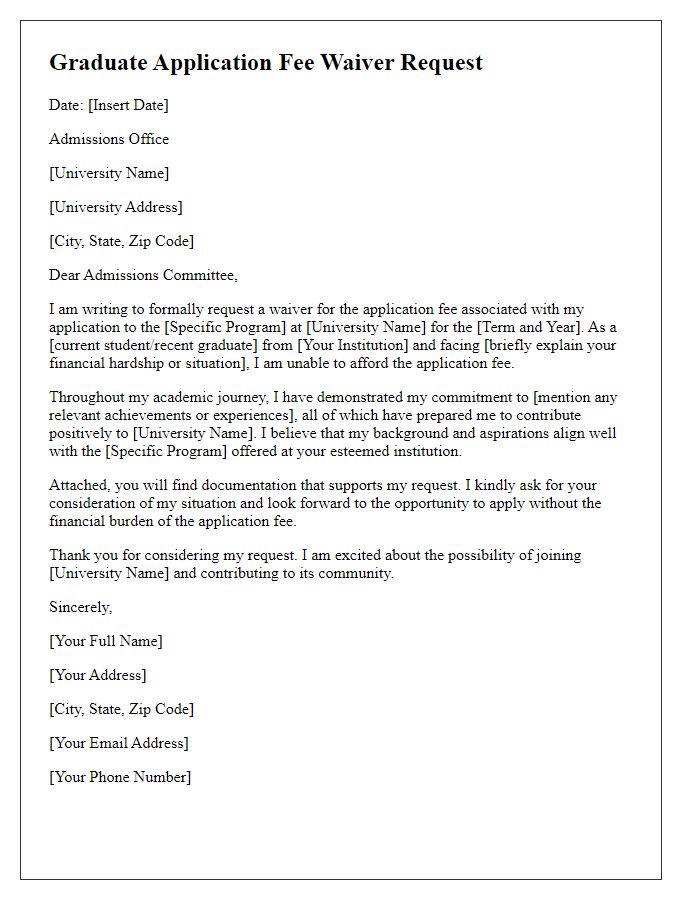
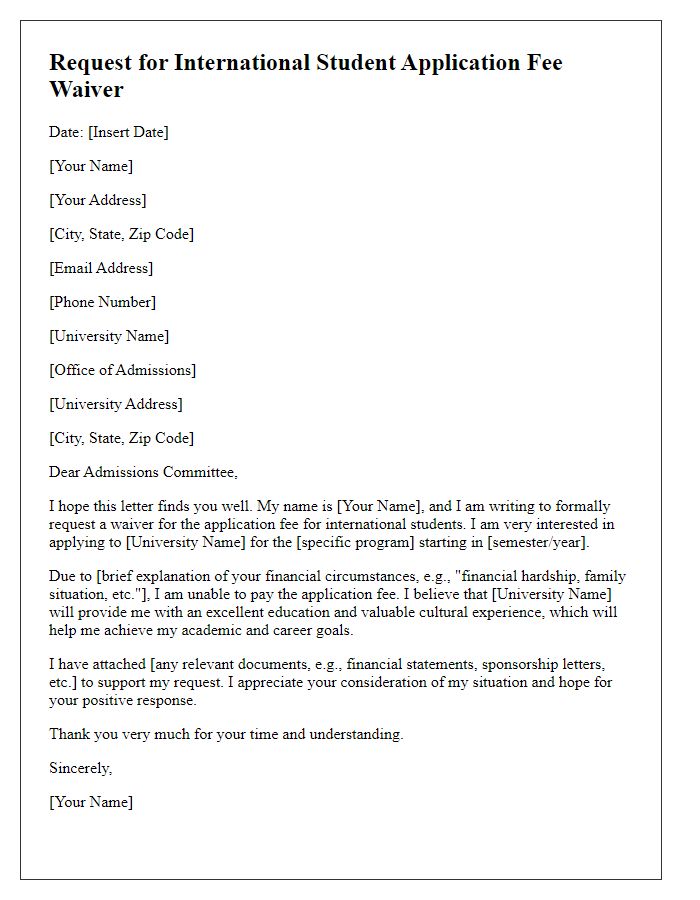
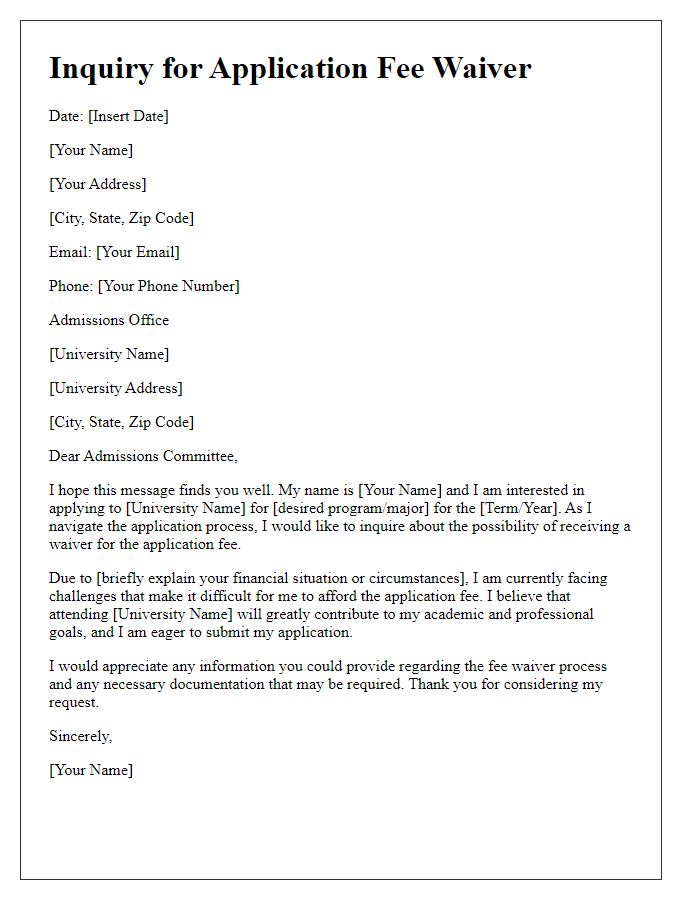


Comments